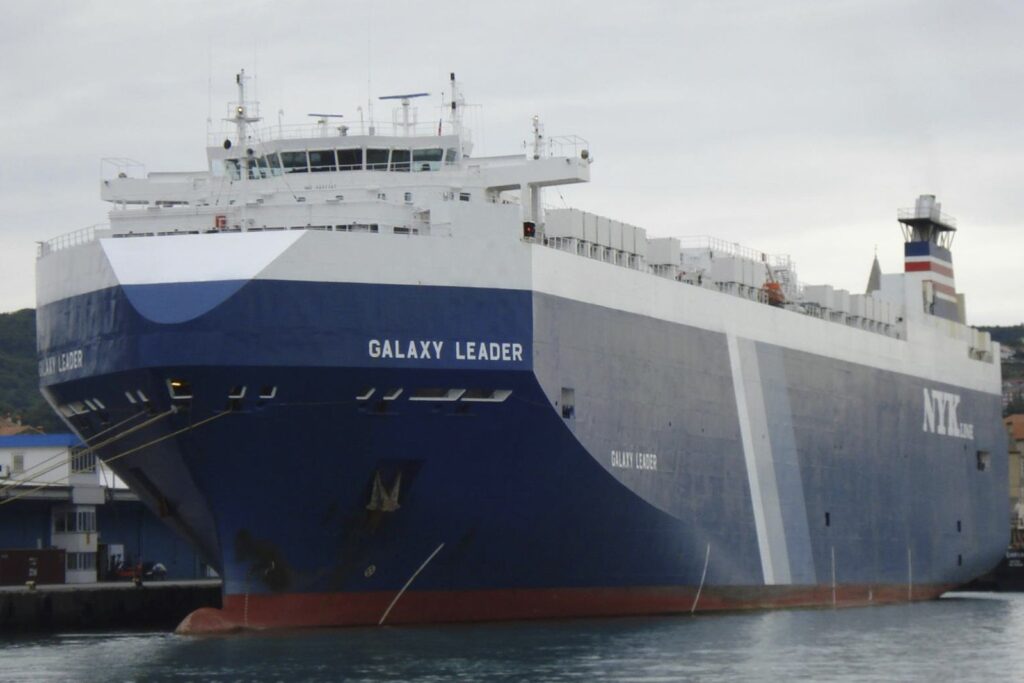
In a significant escalation of regional tensions, Yemen’s Houthi rebels seized an Israeli-linked cargo ship, the Bahamas-flagged Galaxy Leader, in a crucial Red Sea shipping route on Sunday. The rebels, backed by Iran, claimed responsibility for hijacking the vessel, taking over two dozen crew members hostage. The incident has raised concerns that the Israel-Hamas conflict is now spilling over into a new maritime front.
The Houthi rebels justified their actions by stating that the ship’s connection to Israel was the primary reason for the hijacking. They warned of continued targeting of ships in international waters linked to or owned by Israelis until the end of Israel’s campaign against Gaza’s Hamas rulers. “All ships belonging to the Israeli enemy or that deal with it will become legitimate targets,” declared the Houthis.
Israeli Prime Minister Benjamin Netanyahu’s office attributed the attack to the Houthi rebels, condemning it as an “Iranian act of terror.” The Israeli military characterized the hijacking as a “very grave incident of global consequence.” However, Israeli officials insisted that the ship was British-owned and Japanese-operated, downplaying its direct ties to Israel.
The Galaxy Leader, a vehicle carrier affiliated with Israeli billionaire Abraham “Rami” Ungar, raised questions about ownership. While Israeli officials claimed it was British-owned, public shipping databases associated the ship’s owners with Ray Car Carriers, founded by Ungar, known as one of the wealthiest individuals in Israel. Ungar, when approached for comment, stated he was aware of the incident but could not provide details at the time.
The international shipping landscape’s complexity was highlighted, as ownership details often involve a network of management companies, flags, and owners spanning the globe for a single vessel. This incident underscores the challenges in precisely determining ownership and operational control.
According to two US defense officials, the Houthi rebels descended on the cargo ship by repelling down from a helicopter. The rebels’ actions were similar to those reported by NBC News and mark a concerning development in the region’s maritime security. In recent weeks, US warships intercepted missiles or drones from Yemen believed to pose threats to Israel or American vessels.
The USS Carney, a Navy destroyer, intercepted three land attack cruise missiles and several drones launched by Houthi forces toward the northern Red Sea last month. Another destroyer, the USS Thomas Hudner, intercepted a drone originating from Yemen, ensuring the safety of US personnel with no casualties or damage to the ship.
Satellite tracking data revealed that the Galaxy Leader was traveling in the Red Sea southwest of Jeddah, Saudi Arabia, over a day before the seizure was reported by Israel. The vessel’s recent journey from Korfez, Turkey, to Pipavav, India, adds complexity to the unfolding situation.
As global powers monitor the evolving situation, the hijacking of the Galaxy Leader raises concerns about the broader implications for maritime security and the potential spillover of regional conflicts onto international waters. Efforts to de-escalate tensions and secure the release of hostages are now critical priorities for the international community.
